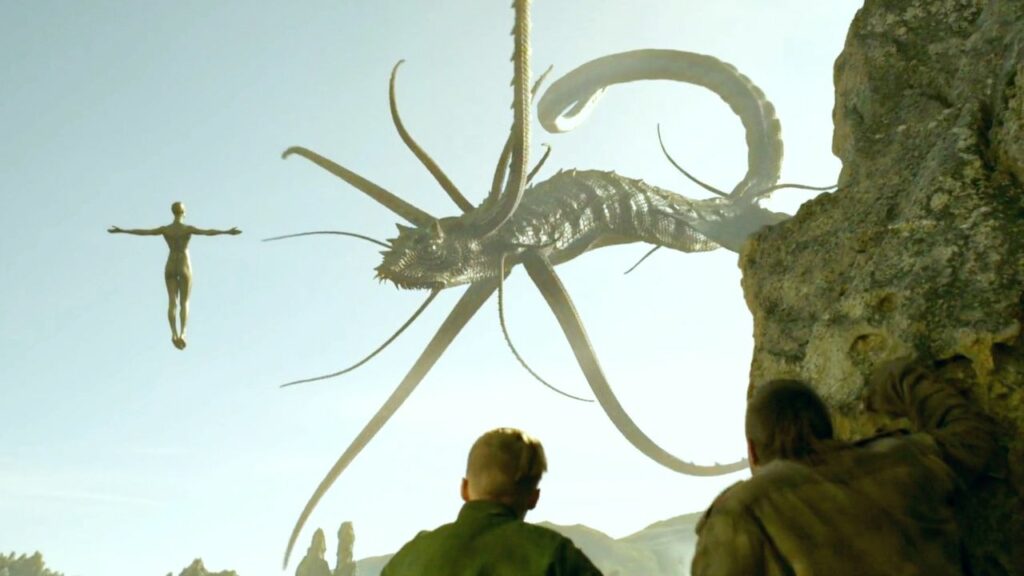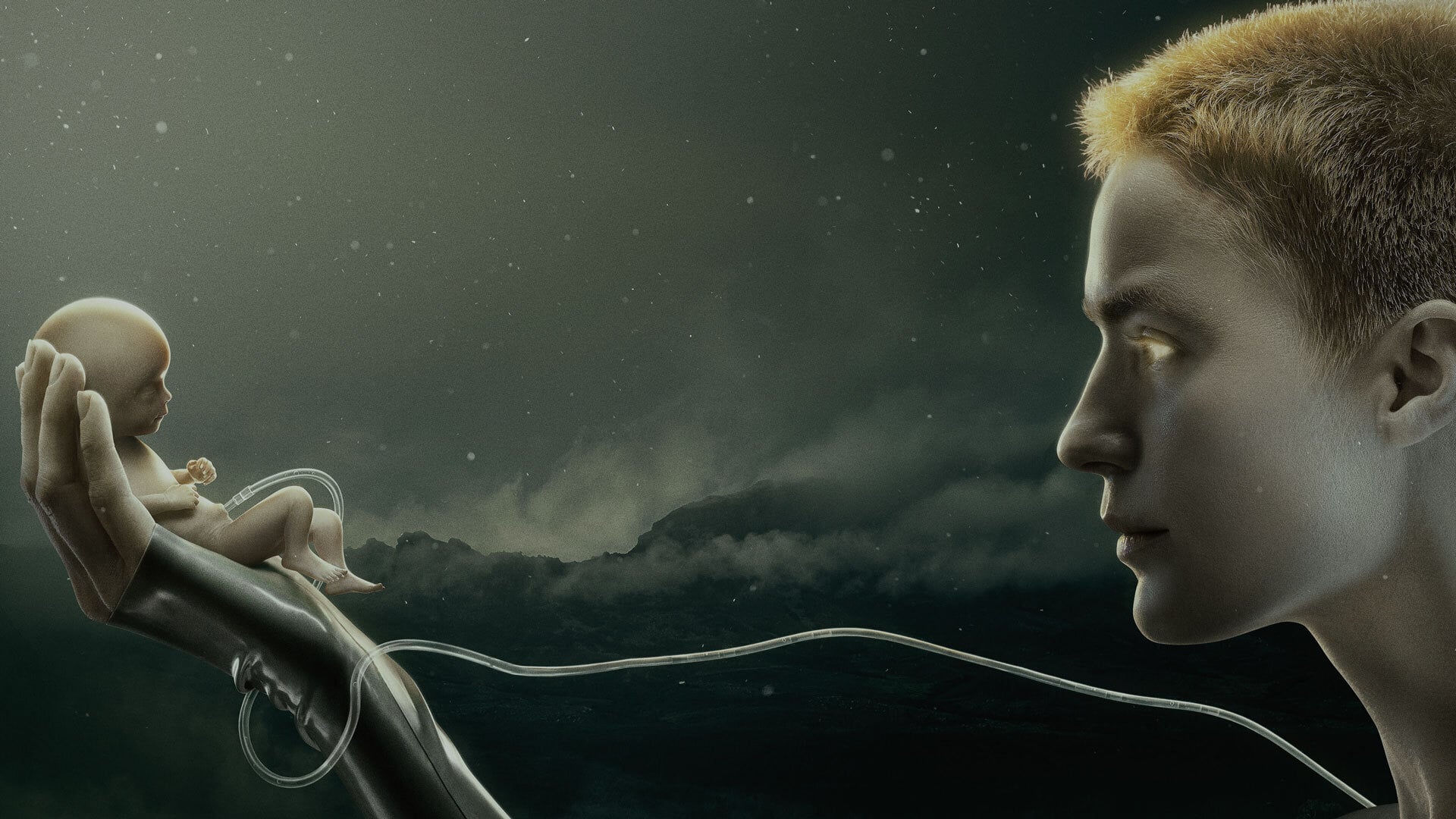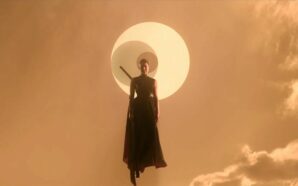I wish I had watched Raised by Wolves as it aired. To support the show, which I’ve come to love after bingeing its two seasons these past few weeks. But I know if I had, I probably would have stopped, given up with it halfway through its first season. At that point the HBO sci-fi series slows almost to a halt, seemingly unsure of what it wants to say and be. I wouldn’t begrudge viewers for giving up. But like The Leftovers before it, one of my all time favourite shows, Raised by Wolves quickly becomes a very different, much better, and far weirder series as it approaches its first season finale.
This metamorphosis turns Raised by Wolves into a Trojan horse. A way to smuggle difficult, weird ideas into a seemingly more normal genre piece. Take The Sopranos, for instance. It can be enjoyed for the show it presents itself as on the surface, a gangster thriller with an ample supply of murder and boobs, but really that is just a mechanism to tell an existential, nihilistic family drama and turn-of-the-century expose of American culture, criminality, and capitalism. It maintains both facets throughout, although those watching for the mob drama may be turned off by the ending. Raised by Wolves instead is a Trojan horse that creator/showrunner Aaron Guzikowski is so intent to show what has been hiding within that he burns the horse at the end of the first season so it can never been hidden again.
The shows begins feeling very much like a Ridley Scott project. He executive produces and directs the opening episodes. In fact, with its subject matter, both literal and thematic, of white-blooded androids with a creation complex, the show acts as a third part in his unfinished Alien prequel trilogy. The show does begin fairly untraditionally, this isn’t your standard sci-fi series, but the story with two androids raising a group of children on a hostile alien world, in conflict with human religious zealots, has enough action, exposition, and Earth-set flashbacks to keep it grounded. It still feels somewhat familiar. But soon Scott’s influence lessens and Guzikowski’s sensibilities begin to come to the fore. After a midseason identity crisis, the show shifts into something else: pure insanity.
The first season finale is the lowest rated episode on IMDB. It turned a lot of casual viewers off from the show. I see a lot of hate for it online. I, however, love it. It’s the show’s masterpiece: the true coming out party for what this show is. Not since Twin Peaks: The Return have I seen a show so bizarre and commercially unviable somehow slip through the system and get produced. I don’t know how to talk about it without spoiling it, at least in part. The finale sees religious prophet/madman Marcus being force fed robot eyes that turn him superpowered, the mysterious signal speaking to people being proved to be an actual godlike intelligence and not just hallucinations, and android Mother giving birth to a half robot, half alien flying snake which spells doom for the planet so she flies it into the centre of the planet to destroy it while it suckles on her, but ends up flying through the entire planet to the other side where it floats away as a serpent in paradise. What?!

It’s during this finale where the true nature of Raised by Wolves becomes clear. It’s not a typical narrative. It’s not worth trying to figure out the logistics of what is literally happening or you’ll go insane. It’s a futuristic myth. A science fiction biblical tale. Some character drama and thrills to maintain minute-to-minute engagement but really it’s better to watch it as some grand metaphor. Sometimes the show can be so inscrutable and obtuse, other times I’m in awe at the scale of its unsubtlety, like the image of a tiny ship flying into the planet’s core representing conception.
The show takes aspects of ancient mythologies, from character names to huge thematic importance placed on repeated motifs, like eyes, and mixes them with religious tales, including Eden, God, the androids flying in the Christ T-pose, and prophets wandering the desert alongside disciples. All in the future on an alien world which is both the location of humanity’s birth and the key to its future. It’s a show where the villain is either God, an alien being, or an ancient rogue AI. Perhaps all three and, in truth, it doesn’t matter which.
If Raised by Wolves had ended with its first season then I would have respected its choice to go out with a challenging, ludicrous ending that revelled in ambiguity and interpretation. Yet it somehow, bafflingly, was commissioned for a second season. It has, of course, since been cancelled after it aired its eight-episode sophomore season. Guzikowski apparently had a five-year plan for the series which we’ll likely never see. It’s always a bad sign when writers go into projects planning too far ahead; it almost never works out that way. If a network other than HBO were to resurrect the series then I’d be happy but I don’t need it. I’m not begging for the answers to mysteries. It’s not that kind of show, at least to me. The more abstract and confounding the series got, the more I loved it.
For a time during the second season I was worried the show was changing course. That Guzikowski was desperately trying to build a new wooden horse to hide his true crazy intentions within. Everything started playing out too traditionally. God forbid, Raised by Wolves started making sense. I was horrified at the prospect. But then one of the lead characters opens a box and is turned into a tree, the forbidden fruit of which her family unknowingly eats, and then the tree itself is eaten by a giant flying snake which turns dangerous because the tree was actually a big biomechanical weaponizing antenna. I breathed a sigh of relief. Nah, still the same bonkers show.








